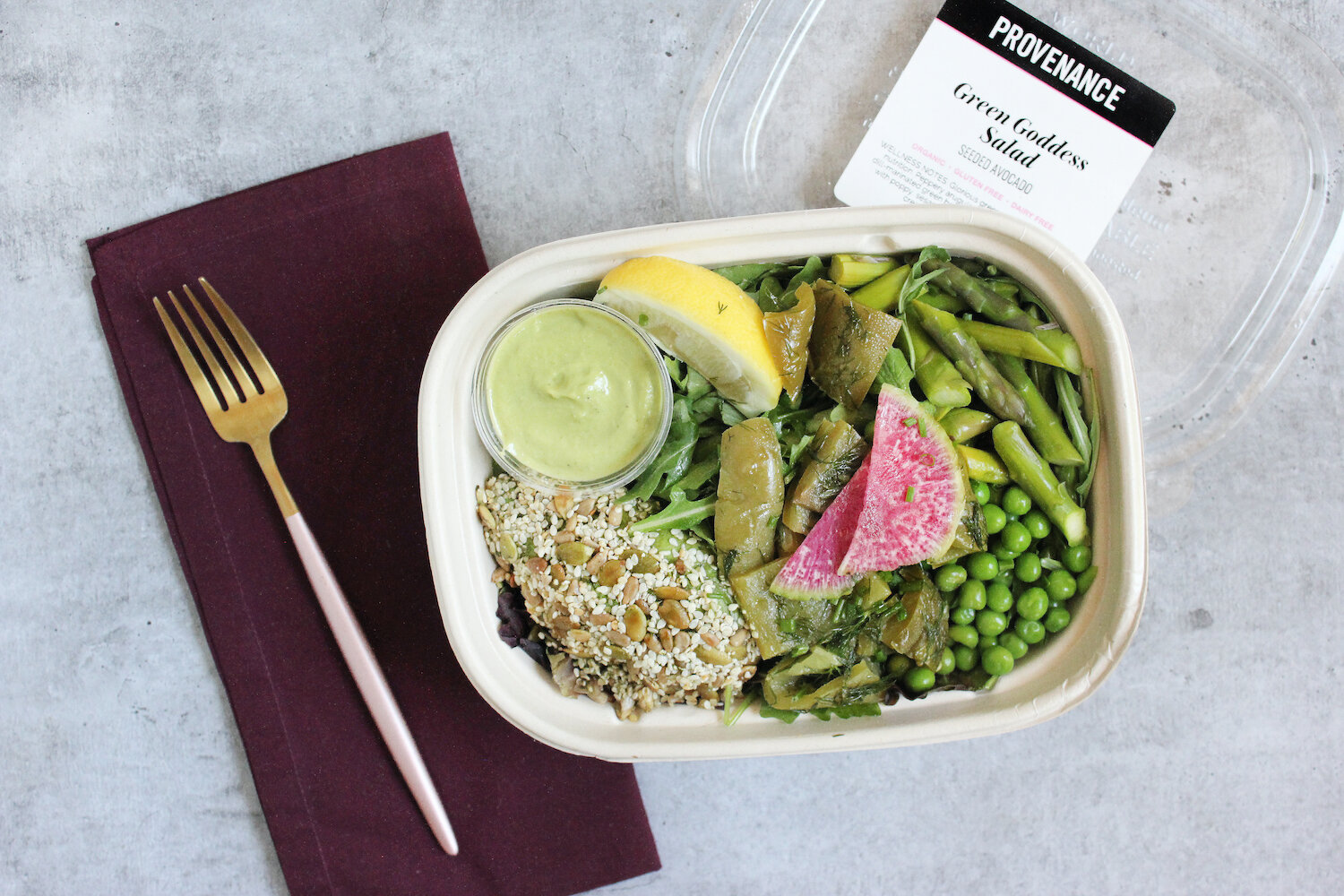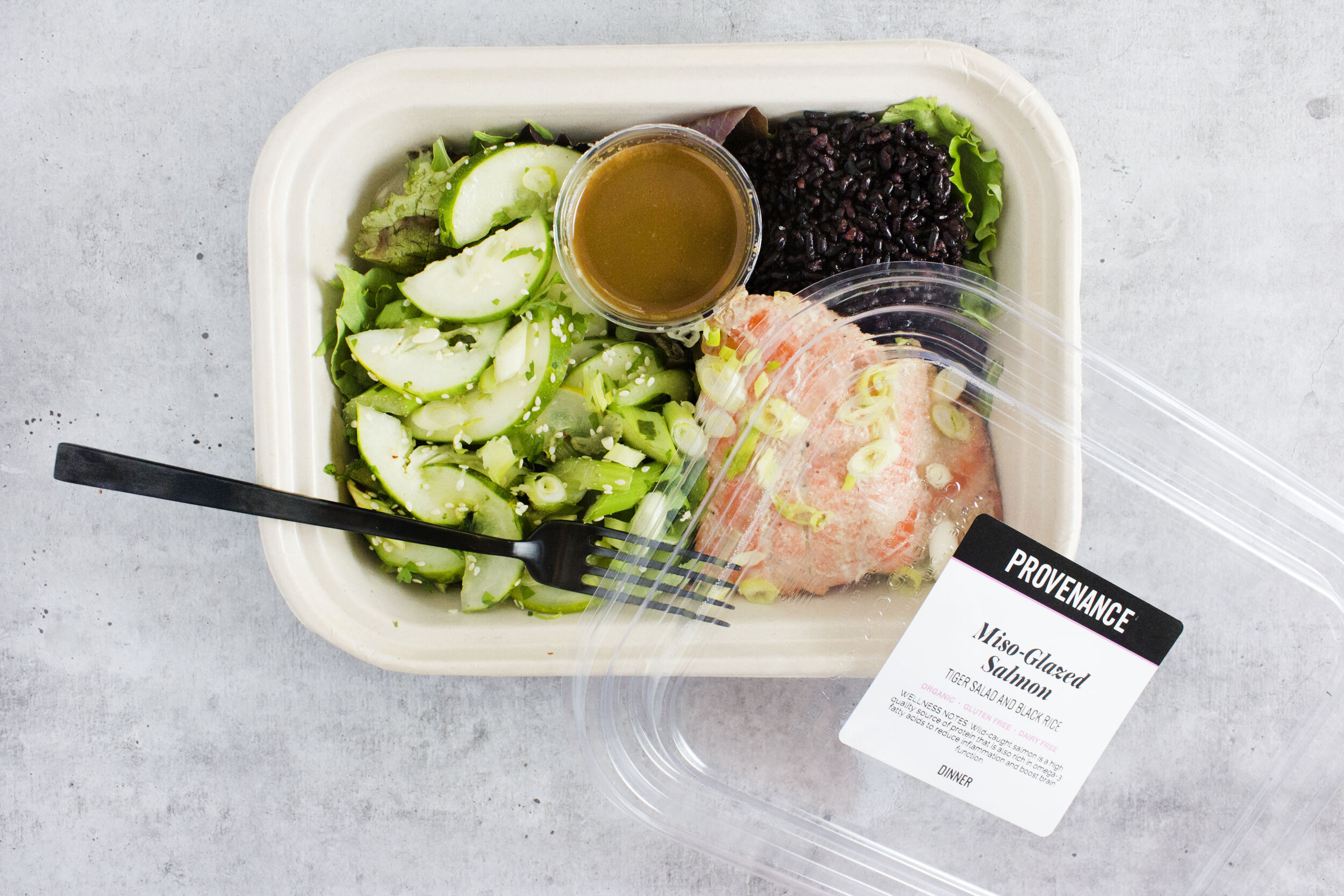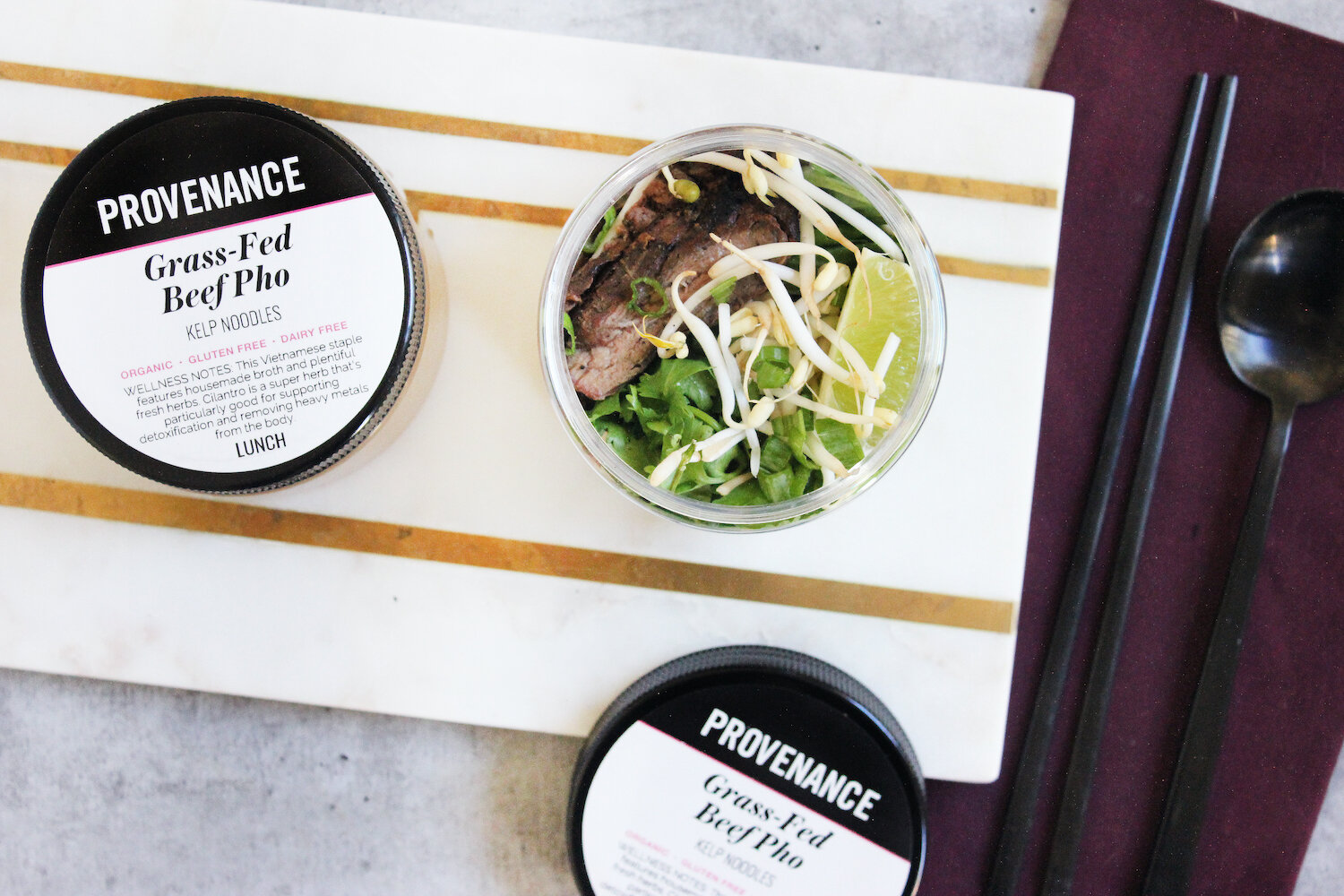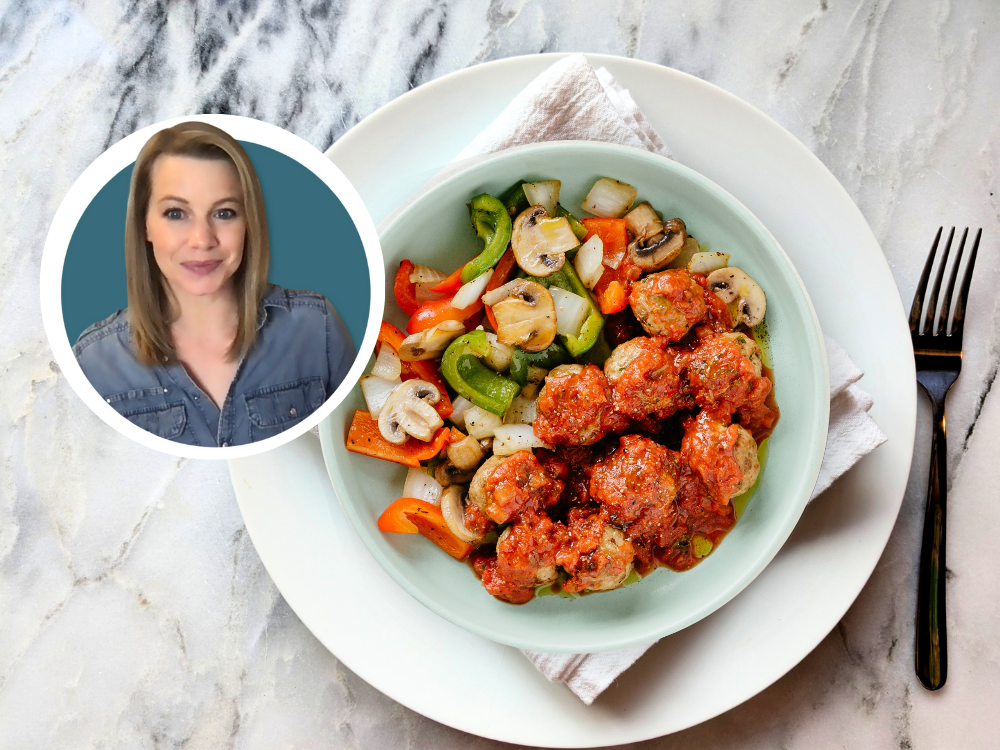With external influences of environment, work, and COVID-19 affecting our hormones, how can we support its balance through food? Our in-house nutrition experts teamed up with a group of powerhouse female health coaches at Parsley Health to shed light on the do’s and don’t’s of nutrition while navigating through the many stages of womanhood. Let’s take a closer look at the impact nutrition has on hormonal health.
Foods For Every Stage of Womanhood
- Low-Mercury Fatty Fish - Salmon, sardines, anchovies, mackerel
- Fresh Vegetables - Aim to eat the rainbow every week
- Good Fats - Avocados, olive oil, and unrefined coconut oil
- Probiotic-Rich Foods - Support the microbiome with kimchi and sauerkraut
- Grass-Fed, Pasture-Raised Animal Protein - No added hormones
- Organ Meats - Most potent source of nutrients in an animal. If new to this, chicken liver has the most mild flavor
- Organic Ingredients - Pesticides can affect fertility
We recognize that the journey of womanhood does not look like this for everyone – every woman is unique, but below provides a list of nutritional advice to support common hormonal stages experienced by women: reproductive, prenatal, postnatal, and menopausal. If you are looking for further guidance on how to navigate hormonal changes, pregnancy, or other health concerns, the team at Parsley Health will work one-on-one with you. Our Client Services Concierge is also here to support you with information to help you select the right Clean Eating Program or Wellness Shop items for your needs.
Reproductive Stage
Currently in her second pregnancy and a Health Coach at Parsley Health, Christina Yang shares her top tips for promoting fertility through diet:
Christina Kang, Health Coach at Parsley Health
Really focus on getting enough omega 3s — 8-12 oz of fish, fish oil, flaxseeds, walnuts, and chia seeds.
Buy organic and if budget is a factor, check out Environmental Wokring Group's Dirty Dozen and Clean Fifteen to decide which foods should be prioritized as organic. The pesticides in food have been associated with higher rates of infertility and also has a negative impact in male fertility as well. A study in the Journal of the American Medical Association showed that by just replacing one non-organic meal with an organic one, women can have an estimated 79% higher odds of clinical pregnancy.
Avoid eating foods that you may be sensitive to for a period of 3-6 months. Also, be careful of replacing certain foods (like gluten) with products that are filled with other harmful ingredients for overall health and fertility.
“The best fertility diet is one that is anti-inflammatory, which may differ depending on the individual due to variations in genes, gut microbiome, environmental and cultural influences, food sensitivities, etc. Ideally, you want to make sure you are balanced in nutrients before getting pregnant since nutrient depletion is difficult to restore during pregnancy because you’re growing another human who requires the same nutrients.”
Daily Essentials Meal Delivery Program: Anti-inflammatory, gluten-free, dairy-free
Prenatal Stage
Christina continues to share her expertise on what to eat when expecting. To help the mom's microbiome health, consume fermented foods like sauerkraut and kimchi. There's a lot of research coming out about maternal microbiome health and positive health outcomes of the baby, beginning in utero.
Kale is packed with folate and antioxidants, and is a good source of minerals like magnesium and potassium, fiber, vitamin C, and beta-carotene.
Seaweed provides the iodine much needed in pregnancy — you need 50% more during this process. Iodine is required to build thyroid hormones and we see a lot of issues with thyroid, particularly hypothyroidism during and post-partum.
Limit your intake of caffeine to 200 mg per day. It is important to try and keep blood sugar low and stable.
Glycine needs in pregnancy far exceed normal requirements in order to help the baby develop and support the growth of the uterus.
Slow-cooked tougher meats like stewed beef break down the connective tissue giving you the rich glycine pool, and bone broth has minerals, including calcium and magnesium essential for baby's developing skeletal system.
Eating organ meat one to two times per week is ideal to get a boost in iron, B12, choline, omega 3s, protein, and all of the fat-soluble vitamins.
If you eat less than 12 oz. of low-mercury fish per week, take fish oil for DHA and EPA.
Eggs are packed with protein, B-vitamins, choline, minerals, vitamins A, D, E, and K, and DHA. Don't be shy to eat multiple eggs per day!
Most Important Nutrients For New Moms
Iron, Choline, B Vitamins, Vitamin D, Fatty Acids
Postnatal Stage
According to Parsley Health Coach Jessie Lucking, the ultimate gift for a new mom would be meal delivery of wholesome foods. It provides ease and nutrition to help mothers spend more time enjoying their first moments with their child while supporting their energy levels. “In many cultures around the world, new mothers are meant to rest and replenish themselves during their Fourth Trimester – the first 40 days and beyond – while the community takes care of them.”
“The soups and bowls in the Feel Good Fix and Daily Essentials are exactly what I have in mind and all of the food is so warming and nourishing, and made with such high-quality, nutrient-dense ingredients. The meals are also so flavorful and decadent and just an overall pleasure to enjoy!
I always recommend new mamas sip on bone broth, tea or water throughout the day as breastfeeding requires a lot of hydration, so the Gingered Beef Bone Broth from the Wellness Shop could be a lovely gift. Ginger is also thought to be a promising galactagogue to help stimulate the production of breast milk for breastfeeding mothers. ”
Menopause + Beyond
“Menopause is an invitation for recalibration of everything that matters in our lives. It is a liberating time we want to enjoy consciously and feeling strong.”
The median age for menopause in the US is around 51, but we see women starting to notice changes, or, go through perimenopause, as early as their 40s.
“As we head toward menopause, the focus should be on optimizing blood sugars and detoxification systems-which are critical for hormonal balance. Lower glycemic meals that contain plenty of colorful vegetables — especially the cruciferous ones — adequate amounts of proteins, good fats and some complex carbohydrates run the show,” explains Caroline Hoeffgen.
Lowering Inflammation and Glycemic Load
Limiting gluten, dairy, and refined sugars from diet help lower inflammation and glycemic load. “The Daily Essentials program is a great way for women at this stage to experience how a low glycemic, whole foods diet can help them manage symptoms in conjunction with other lifestyle changes."
Past menopause, foods continue to affect all the hormones in our bodies as we age, specifically insulin and cortisol. Continuing to eat a whole foods diet will promote overall health and reduce the risk of developing symptoms and disease processes.
Caroll Lee, Certified Health Coach and CEO of Provenance Meals
No matter your life stage, stress can disrupt the body’s natural hormone balance, affecting menstrual cycles, skin health, and more. Caroll Lee, certified health coach and CEO of Provenance Meals, recommends these stress-busting tools to help balance your hormones:
Adaptogens like Ashwagandha balance the adrenals and help manage stress levels.
If soy is in your diet, eat it in fermented forms like tempeh and miso. Soy mimics estrogen and can throw off your natural balance.
Superfoods like maca, flax, and bee pollen balance hormes.
Focus on restorative movement — overexercising can cause stress in the body.
Get enough sleep, at least 7-8 hours a night.
Incorporate mindful activities like meditation and yoga.
Develop a routine that helps reduce stress. The Provenance Detox program is a great option to kickstart new eating habits and treat yourself to a week of self-care and reduce the stress that can arise from choice overload in regards to your daily food decisions.





















